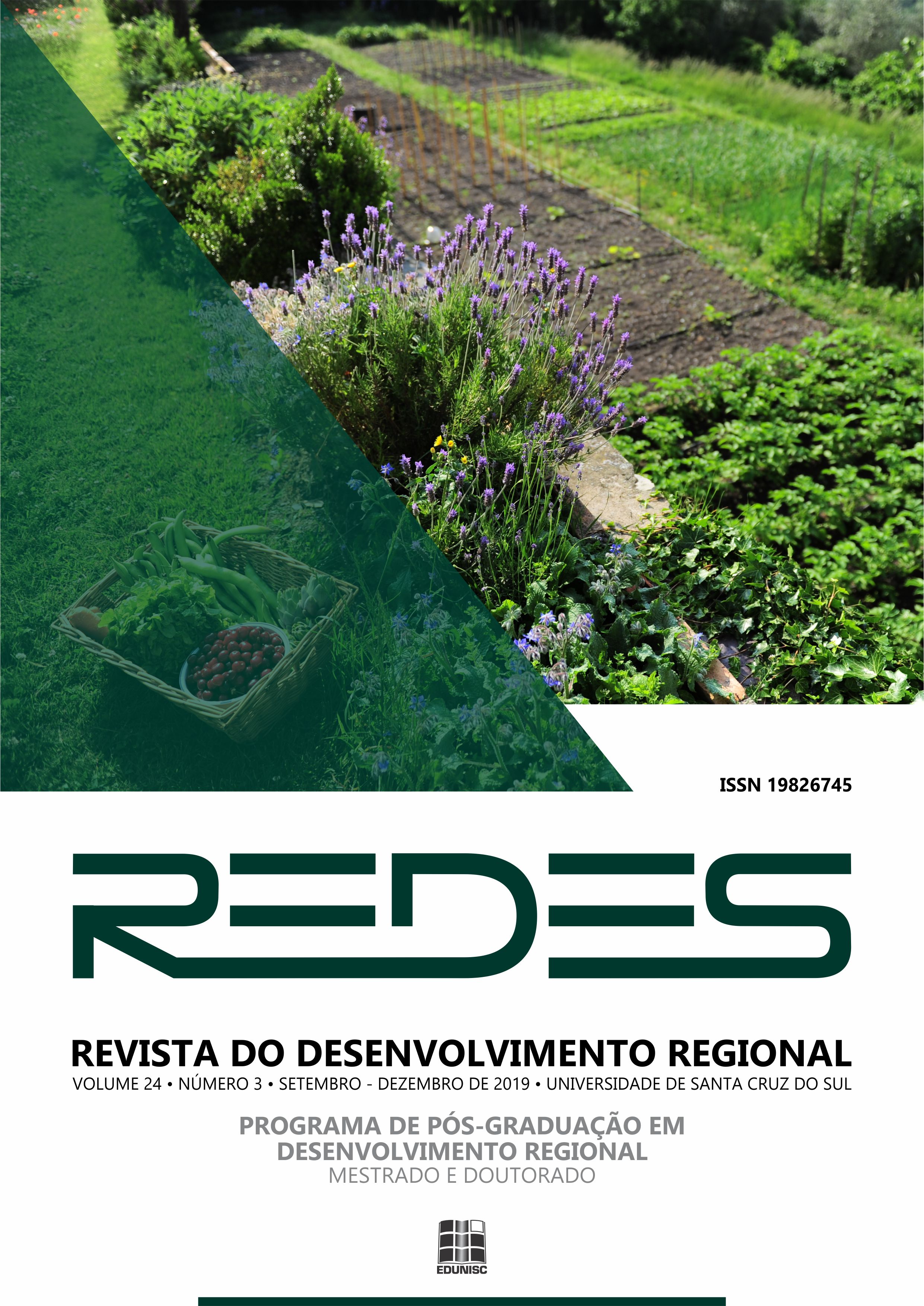Environmental sanitation in the region of Missões-RS: reality and challenges in the implementing public policies promoting regional development
DOI:
https://doi.org/10.17058/redes.v24i3.9894Keywords:
Regional Development Council. Urban solid waste. Waste pickers cooperative. Selective collection. Public consortium.Abstract
The implementation of appropriate public policies to solve problems related to environmental sanitation and more especifically the collection of municipal solid waste (RSU), constitutes a major challenge to be faced by most brasilian municipalities.The article analyzes the reality experience by the municipalities of de region of Missões, Rio Grande do Sul, regarding the collection and treatment of urban solid waste, with the objetive of contributing to regional development. The qualitative approach is used, based on the analysis of documents and in the bibliographic review. It was possible to see that the alternatives proposed for the equation of the problems faced go Through the formation of cooperatives of waste pickers, with regard to selective collection of urban solid waste, and the joint action of municipalities, Through the formation of public consortia with regard to the final destination of waste in landfills.Downloads
Download data is not yet available.
Downloads
Published
2019-09-03
Issue
Section
Articles
License
The submission of originals to this journal implies the grant, by the authors, of the printed and digital publication rights. Authors retain copyright and grant the journal right of first publication. Authors may only use the same results in other publications clearly indicating this journal as the medium of the original publication. Because we are an open access journal, we allow free use of the articles in educational and scientific applications provided the source is cited under the Creative Commons (CC-BY) license.How to Cite
Rotta, E., & Franqui, L. H. T. (2019). Environmental sanitation in the region of Missões-RS: reality and challenges in the implementing public policies promoting regional development. Redes , 24(3), 313-333. https://doi.org/10.17058/redes.v24i3.9894



